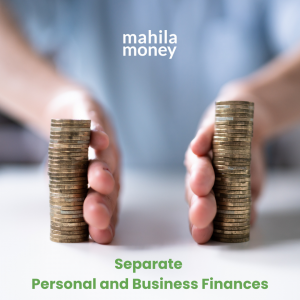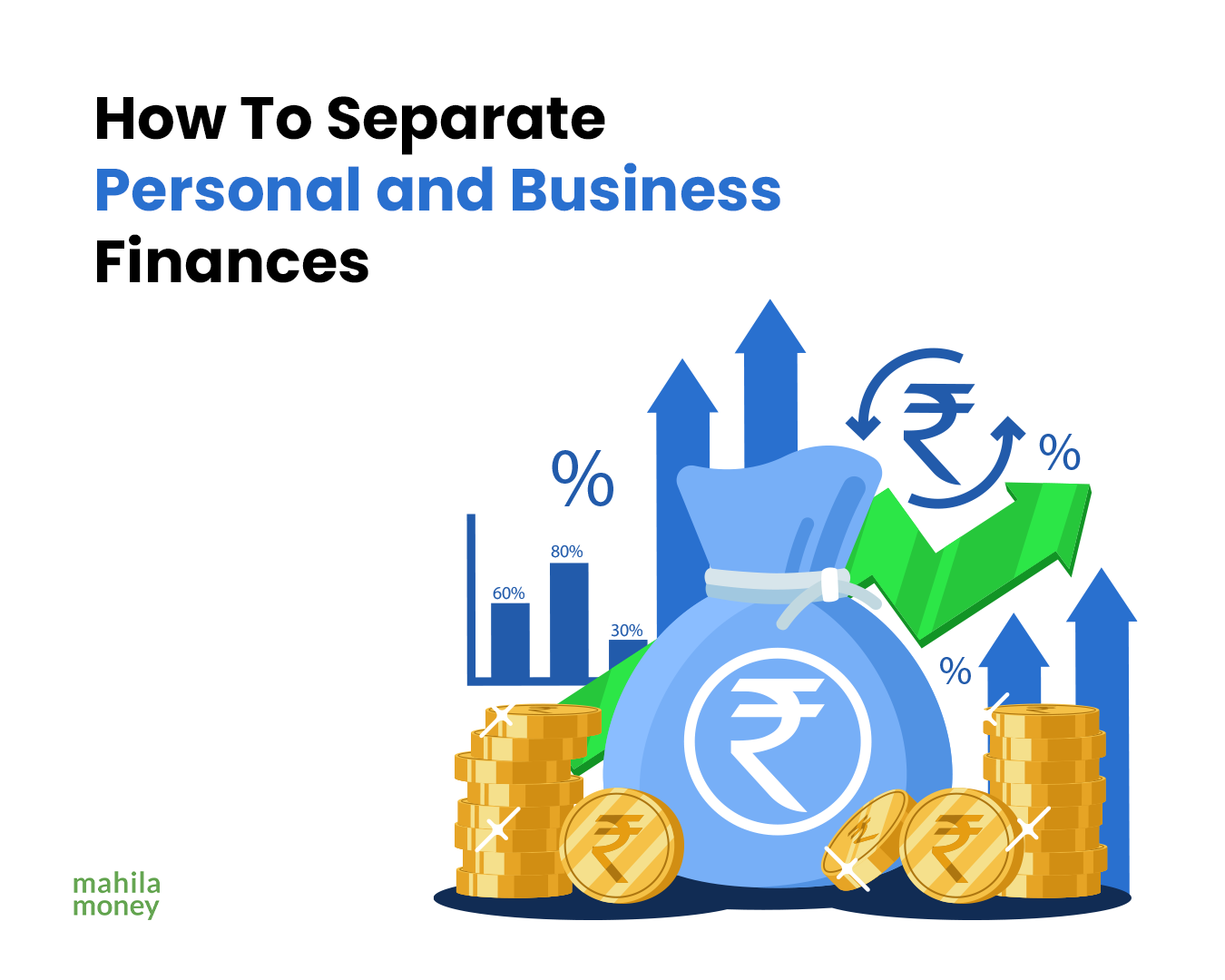Here are some ways how to separate personal and business finances with practical tips to streamline expenses, simplify taxes, and protect your assets.
Are you a small business owner? Do you have separate business and personal accounts? Keeping business and personal finances separate is important for avoiding tax headaches, legal risks, and financial mismanagement. This guide will walk you through why it is important to separate personal and business finances and provide actionable tips to streamline your financial practices.
Apply for a Business Loan
Why Is It Important to Separate Personal and Business Finances?
Did you know that 60% of small business owners report cash flow mismanagement? Why? One of the main reasons is that they mix personal and business finances. The after-effects can be significant, ranging from tax complications to financial misreporting. It may also lead to the risk of jeopardizing your personal assets in legal matters.
Imagine a small boutique owner who mixes her personal and business expenses in one bank account. When she files her taxes, her accountant may find it hard to separate deductible expenses. Not keeping clear financial records can lead to penalties and missed deductions. You can avoid these problems by keeping your finances separate. Good financial records help make accounting easier, build trust with stakeholders, simplify tax filing, and improve your business’s financial reputation.
The Difference Between Personal and Business Finances
Personal finances involve managing your household expenses, savings, and investments. Business finances, on the other hand, include income, expenses, and financial strategies tied to your enterprise. While it might feel like your business is an extension of yourself, the two must be managed independently.
Do you know 70% of small business owners without a business account were turned down for a business loan? Lenders appreciate transparency and professionalism. Beyond funding, this distinction helps business owners create sustainable strategies without draining personal resources. Keeping business and personal finances separate is also one way to get approved for a business loan faster.

10 Tips How To Separate Personal and Business Finances
-
Open a Dedicated Business Bank Account
A business account ensures all revenue and expenses are recorded. It simplifies tracking, reduces errors, and adds credibility to your enterprise.
2. Apply for a Business Credit Card
Using a business credit card helps you manage your cash flow and improve your business credit score. This enables you to get loans or expand your operations.
3. Track All Expenses Carefully
Leverage tools like QuickBooks or Tally to keep detailed records of every business expense. This ensures accuracy in financial reporting and reduces audit risks.
4. Set a Salary for Yourself
Treat yourself as an employee by drawing a fixed salary. This discipline prevents unplanned withdrawals and creates a steady financial structure for your business.
5. Use Invoicing Software
Professional invoices create clarity for clients and help keep your income records accurate. Consider platforms like Razorpay or Zoho Invoice.
6. Hire a Professional Accountant
An accountant helps you follow tax laws, avoid mistakes, and give helpful advice to improve your business’s finances.
7. Develop a Budget for Business
Create a realistic business budget to manage expenses, track profit margins, and plan for future growth.
8. Stay On Top of Taxes
Separate finances make tax filing straightforward, ensuring you don’t miss out on deductions or face penalties.
9. Establish an Emergency Fund for Business
A dedicated fund for business emergencies ensures you don’t dip into personal savings during tough times. Are you looking for some tips on how to build an emergency fund for your small business? This guide can help.
10. Regularly Monitor Financial Health
Review your business’s financial reports monthly. This practice helps you identify trends, cut unnecessary costs, and make informed decisions.
Final Thoughts
Separating business and personal expenses isn’t just a financial best practice; it’s a way to protect your livelihood and enable your business to thrive. Implementing these tips might seem daunting initially, but the long-term benefits outweigh the effort. Take the first step today toward building a financially sound foundation for your business!

If you are a woman entrepreneur who wants to take your business to new heights and is in need of working capital and entrepreneurship resources, come speak to us on Mahila Money. For more such #JiyoApneDumPe live conversations, download the Mahila Money App on Play Store or visit us on www.mahila.money




